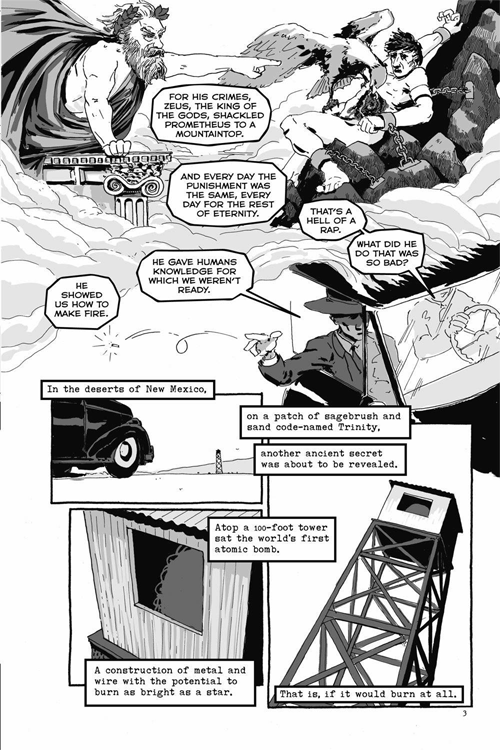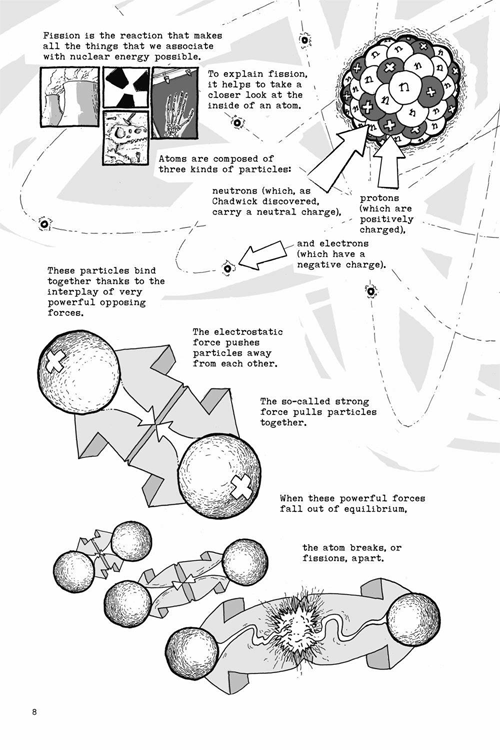Trinity: a graphic history of the Atomic bomb (review)
I’m a fan of graphic novels on non-fiction topics. By putting techniques from comics and illustration at the forefront of the book, there is a power to convey complex ideas in salient ways that transcends written language. Books like LogicComix and The Book of Genesis by Crumb take on ambitious topics with grace, style, potency and charm.
The book Trinity, by Jonathan Fetter-Vorm of Two Fine Chaps, takes on the development of the first atomic bomb. He describes the planning, the personalities, and, with great style, the science involved in how they developed the ideas behind the bomb. It’s a short book, as most graphic novels are, but the illustrations will last long in my mind.
If you’ve been intimidated by Rhodes classic The Making of the Atomic Bomb and want a gentler introduction into the central history, issues, science and drama, this book is a great place to start. It’s also appropriate for young adults (the illustrations of the bombings at Hiroshima and Nagasaki at the end are moving more than graphic).


You can buy Trinity: a graphic novel history of the atomic bomb here.


Thanks for the post. I too am a fan of the way comics provide a connection with the reader for immediate understanding. Writers of dry-as-dust product brochures could learn a lot from these techniques. The customers of, say, financial services organisations may be unlikely to appreciate a comic and the product managers too conservative to produce them, but a few well-placed metaphorical pictures would transform their documents.
Keep up the great work.
Thanks Mark. Any graphic novels you’d recommend?
How about Maus? It’s the story of a holocaust survivor written by the son. Very well done books. https://www.amazon.com/exec/obidos/ASIN/0679748407/scottberkunco-20/
I would recommend Maus. When I read it right brain and left brain had a fight – rb was affected by the story while lb (in a huff) did not get how a story with rats, cats, pigs and dogs in it could possibly be moving! The book changed my perception of the genre.
Though not novels, I would recommend Scott McCloud’s “Understanding Comics” and his Google Chrome press release.
Or , for great artwork and an old view of the future, get hold of Dan Dare from the long-gone British comic “Eagle”.